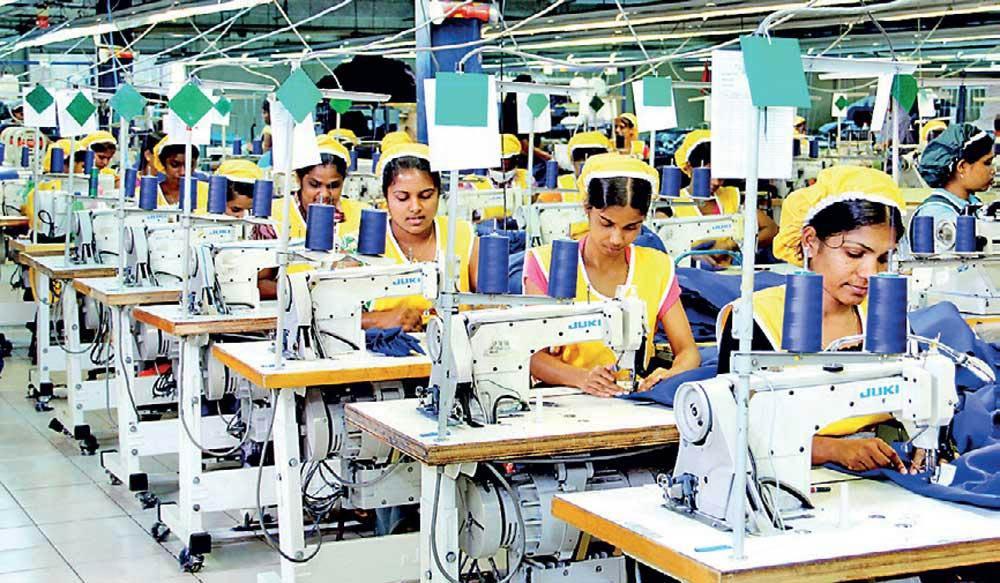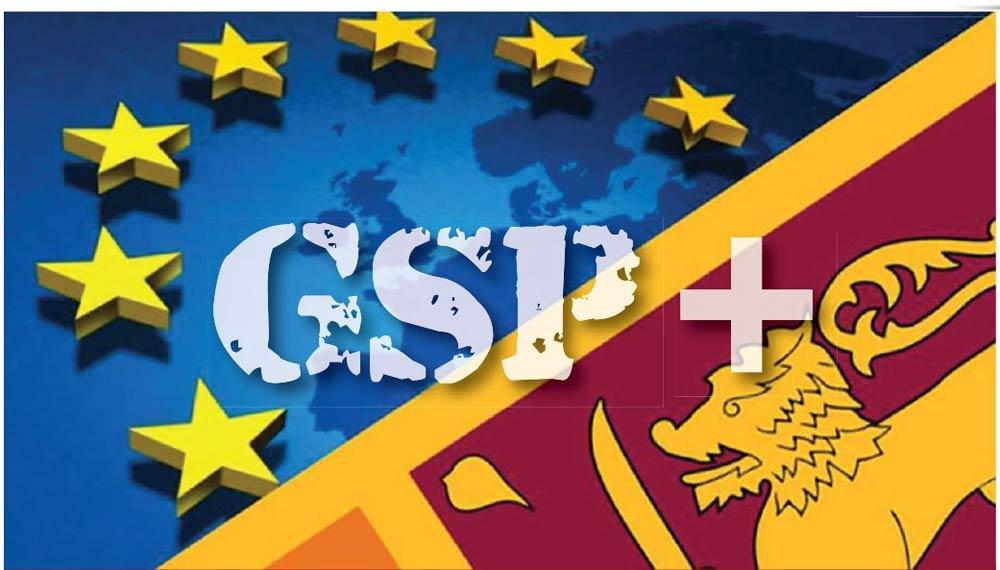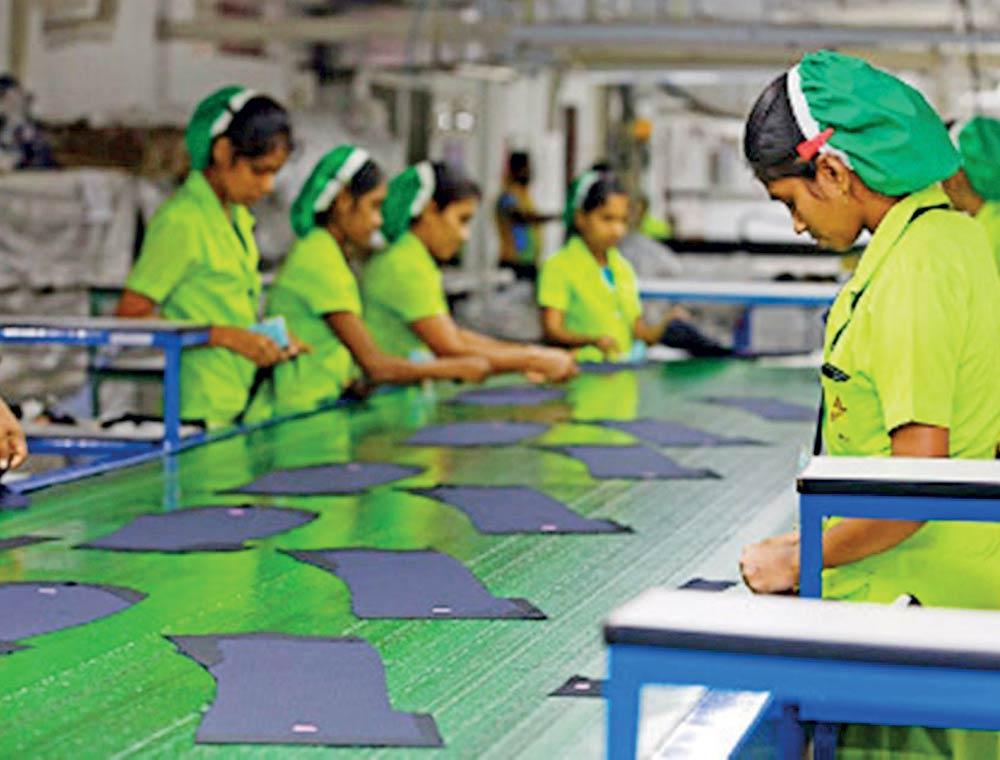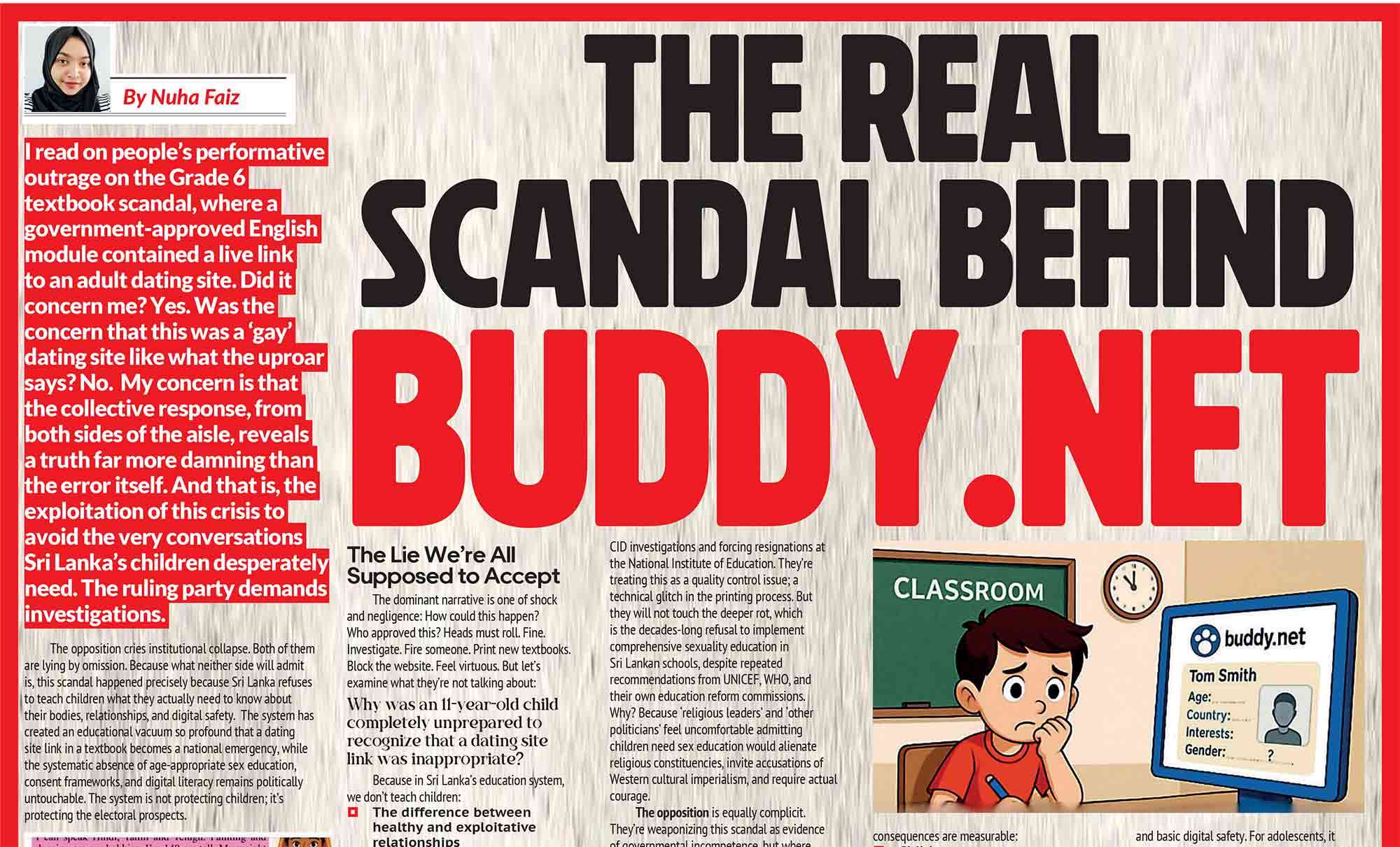

THE PR INSIDER BY FARZANA BADUEL

 Every few years, Sri Lanka finds itself at the same crossroads, compelled to prove, once again, that it deserves continued access to the European Union’s GSP+ trade concession. Each renewal becomes a political and public relations battle, one that tests not only Sri Lanka’s diplomatic agility but also the country’s ability to communicate its values to the world.
Every few years, Sri Lanka finds itself at the same crossroads, compelled to prove, once again, that it deserves continued access to the European Union’s GSP+ trade concession. Each renewal becomes a political and public relations battle, one that tests not only Sri Lanka’s diplomatic agility but also the country’s ability to communicate its values to the world.
At stake is far more than trade bureaucracy. The Generalised Scheme of Preferences Plus (GSP+) is the lifeline of Sri Lanka’s export economy, particularly its apparel industry, which employs hundreds of thousands and represents over 40 percent of total exports. The tariff-free access it grants to EU markets allows Sri Lankan-made garments to remain competitively priced against global rivals like Bangladesh, Vietnam, and Cambodia. If Sri Lanka loses it, the economic shock will reverberate from factory floors in Katunayake and Koggala to the boardrooms of Colombo and beyond.
The EU’s current GSP+ concession for Sri Lanka expires in 2027. To renew it, the government must reapply and demonstrate compliance with international human rights, labour, and governance standards; a process that invites scrutiny not only from Brussels bureaucrats but from advocacy groups, trade unions, and diaspora networks across Europe. The playing field is not purely economic; it is also ideological and emotional. In that context, Sri Lanka’s greatest vulnerability is not just policy noncompliance, but the failure to communicate progress and principle effectively. This is where public relations, both governmental and corporate becomes not a cosmetic exercise, but an instrument of national interest.
The Cost of Silence
When the EU temporarily suspended GSP+ in 2010, Sri Lanka lost billions in export earnings and thousands of jobs. It was not just about missed compliance targets; it was about perception. The EU viewed Sri Lanka as unresponsive to concerns around governance and human rights. The government at the time struggled to tell its story, to show that it was committed to reform, reintegration, and rebuilding after decades of conflict.
Fifteen years later, the risk remains the same. The apparel industry has evolved, embedding world-class sustainability standards and pioneering ethical manufacturing. Sri Lankan factories are among the cleanest and most transparent in the world. Yet in the court of European public opinion, perception lags behind reality.
The government and the private sector have treated communications as an afterthought rather than a strategic pillar of economic diplomacy. That must change. Losing GSP+ in 2027 is not inevitable, but it will take a coordinated communication effort rooted in transparency, empathy, and evidence to prevent it.
The Human Rights Dimension
The EU’s scrutiny centres on compliance with 27 international conventions, from labour rights and environmental protection to press freedom and the rule of law. Critics cite concerns about the Prevention of Terrorism Act (PTA), civil liberties, and governance.
Many governments’ instinct has often been defensive to react when criticised, rather than proactively set the narrative. But the reality is that the conversation in Brussels, Strasbourg, and Geneva is as much about narrative as it is about legislation.
Sri Lanka must demonstrate progress, not perfection. That means showing how reforms are unfolding, how oversight mechanisms are functioning, and how civil society is being engaged. Rather than relying solely on diplomats, Colombo should harness modern strategic communications such as data visualisation, storytelling, media engagement, and digital advocacy to illustrate real-world progress.
Brussels is a capital that listens to civil society. That means Sri Lanka needs to ensure that credible, independent voices including academics, business leaders, NGOs, and community advocates are part of the communication ecosystem. Their stories carry more weight in policy circles than official press releases ever will.
Corporate Diplomacy: The Apparel Industry’s Role
If GSP+ were to lapse, the apparel sector would be among the first to feel the pain. Factory closures, job losses, and reduced competitiveness would ripple through the economy. Yet this same sector could become the strongest advocate for Sri Lanka’s case, if it speaks with one voice.
Sri Lanka’s apparel industry already embodies the values Europe claims to champion; women’s empowerment, ethical sourcing, environmental sustainability, and fair wages. The industry’s “Garments Without Guilt” campaign, once celebrated globally, is precisely the kind of soft power narrative that can counter outdated perceptions.
What’s missing is sustained visibility. European policymakers and consumers rarely hear the success stories of Sri Lankan manufacturers who invest in solar energy, provide free childcare, or champion circular fashion. These stories need to be amplified through trade media, op-eds, documentaries, and social channels, not as marketing, but as diplomacy.
Every factory that meets international compliance standards is a case study in partnership and progress. Every Sri Lankan garment on a European rack should represent more than quality stitching, it should symbolise the shared values of human dignity, sustainability, and resilience.
To achieve that, the industry’s corporate affairs and CSR teams must evolve into strategic communication engines, producing credible data, engaging in policy dialogue, and building relationships in Brussels, Berlin, and Paris. This is not traditional lobbying; it is narrative diplomacy.
Winning the Battle in Brussels
Europe’s political climate is changing. The EU Parliament faces pressure from advocacy groups, diaspora organisations, and domestic politics to take tougher stances on human rights and trade. Sri Lanka cannot rely solely on embassy staff or ad hoc visits from ministers. The government needs a structured Brussels communications and lobbying strategy, one that combines factual reporting with emotional resonance. This means:
- Establishing a dedicated communications cell within the Ministry of Foreign Affairs focused on EU relations.
- Retaining reputable public affairs consultancies in Brussels that understand the European political ecosystem and can engage policymakers, think tanks, and NGOs.
- Building a “Sri Lanka in Europe” coalition, a partnership between the government, apparel exporters, tea producers, and diaspora professionals to tell a unified story about modern Sri Lanka.
- Hosting policy dialogues, cultural exhibitions, and sustainability showcases that demonstrate reform in action.
Brussels is not persuaded by slogans; it is persuaded by relationships. The country that tells its story best often wins the argument, even before the policy is written.
The CSR Imperative
For Sri Lankan companies, corporate social responsibility must go beyond charity and compliance reports. CSR is not just about good deeds; it is about demonstrating alignment with the values that matter to international partners. EU stakeholders are increasingly guided by ESG (Environmental, Social, and Governance) principles. Sri Lankan corporates must frame their CSR initiatives through that lens, showing measurable impact on communities, climate, and governance. The apparel sector can lead the way by:
- Publishing annual ESG reports benchmarked against global standards.
- Partnering with European universities and NGOs on sustainability and gender equality programs.
- Creating multilingual media content that documents local impact stories in real time.
These are the stories that soften perceptions and humanise data. They show that Sri Lanka’s economic success is intertwined with social progress.
Building a National Communications Framework
What many countries lacks is coordination. Government ministries, export councils, and industries often operate in silos, each with their own messaging. The result is fragmented communication that confuses rather than convinces. A National Communications Council comprising representatives from the Ministry of Trade, Foreign Affairs, BOI, and industry associations could serve as a unified platform for messaging, crisis management, and brand strategy. Such a council could oversee:
- A GSP+ strategic communications roadmap from 2025 to 2027.
- A digital diplomacy campaign that showcases progress on human rights and sustainability.
- Rapid response mechanisms to counter misinformation in international media.
- A visual data hub illustrating metrics on labour rights, environmental protection, and economic reform.
This would allow Sri Lanka to move from reactive PR to proactive storytelling, positioning the country as a reforming, responsible, and forward-looking democracy.
A Message of Resilience and Reform
Sri Lanka’s story has always been one of resilience, a nation that has survived civil war, natural disasters, and economic collapse, yet continues to rebuild. The challenge now is to communicate that resilience not as defiance, but as progress. The narrative must show Europe that Sri Lanka is not asking for leniency, but for partnership. That Sri Lanka recognises human rights and governance as shared objectives, not imposed conditions. That the island’s factories, entrepreneurs, and civil servants are striving imperfectly but earnestly toward a more equitable future. The narrative must shift from “Sri Lanka under scrutiny” to “Sri Lanka under transformation.”
The Role of the Media
Local media also has a role to play. Too often, international perception is shaped by foreign correspondents rather than domestic voices. Sri Lankan journalists, editors, and communications professionals must engage in this global conversation contributing articles, op-eds, and thought leadership to European publications. Popular Sri Lankan press publications can become platforms that articulate Sri Lanka’s reform story to the world. But this requires openness, transparency, and confidence in telling complex truths not just government press releases. If we want the world to believe in Sri Lanka’s progress, the island must first believe in the power of its own voice.
From Crisis to Credibility
Ultimately, retaining GSP+ is about credibility, the confidence that Sri Lanka is a trustworthy partner in trade and human rights. Credibility cannot be manufactured; it must be earned through consistency, openness, and communication. If Sri Lanka’s government and corporate leaders treat this as a technical reapplication, they may lose. But if they approach it as a national storytelling campaign rooted in evidence, empathy, and engagement they will win not only tariff concessions but also the respect and partnership of the international community. The world is listening. Brussels is watching. The question is: will Sri Lanka speak with one voice, one message, and one vision? Because in today’s interconnected world, policy alone doesn’t win hearts or trade agreements, communication does.

About The Writer
Farzana Baduel, President-elect (2026) of the Chartered Institute of Public Relations and CEO and Co-founder of Curzon PR (UK), is a leading specialist in global strategic communications. She advises entrepreneurs at Oxford’s Said Business School, co-founded the Asian Communications Network (UK), and serves on the boards of the Halo Trust, and Soho Theatre. Recognised on the PRWeek Power List and Provoke Media’s Innovator 25, she also co-hosts the podcast, Stories and Strategies. Farzana champions diversity, social mobility, and the power of storytelling to connect worlds.











